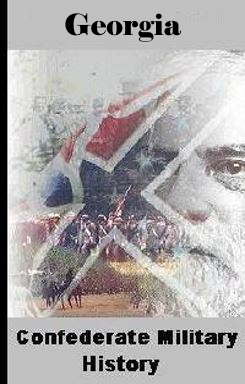War Stories & School-Day Incidents for the Children
Berrian McPherson Zettler lived in Macon County, Georgia, and wrote War Stories and School-Day Incidents for the Children. Although references to him appear frequently in Georgia's Macon Weekly Telegraph during his tenure as Bibb County Superintendent of Public Schools, little information has been published about his life. The 1880 United States Census for Bibb County, Georgia, lists Zettler's age as 37, his birthplace as Georgia, and his occupation as Superintendent of Public Schools. The same census shows him married to Harriet (age 37), with whom he had three children: Guyton (age 7), Gordon (age 6), and Hattie (age 2). The 1900 Fulton County census records list Zettler's birthdate as September 1842, and the 1910 Dekalb County census confirms notices published in the Macon Weekly Telegraph that reveal the loss of his first wife and his subsequent marriage to Matilda L. (age 63). Articles in the Telegraph from approximately 1870-1900 reveal Zettler's passionate commitment to education throughout his tenure as superintendent, a commitment which was at times tested by political controversy and resistance to his ideas for improving access and the quality of education for the local population. Unfortunately, no further references to Zettler can be found in the public record for the years after he retired from his position as Superintendent of Public Schools.
The impetus for writing War Stories and School-Day Incidents for the Children, as Berrian McPherson Zettler explains in his brief introduction, was the encouragement of two school principals who had found his talks to their students about his Civil War experiences helpful in teaching American history. War Stories and School-Day Incidents does not attempt to be an exhaustive biography. Zettler devotes only four short chapters (a total of thirty-one pages) to growing up on his family's farm, his school days , and his preparations for entering the Confederate army. The remaining eight chapters are devoted to his experiences during the Civil War.
Zettler writes fondly and wistfully of growing up on his family farm near Springfield, Georgia (Effingham County). He hunted and fished, gathered the fruit that grew abundantly on the property, swam in the creek near his house, and enjoyed the sumptuous dinners his mother cooked on weekends. The farm and its surroundings are, he says, "perfect" (p. 16) and "still the dearest spot on earth to me" (p. 17). Apparently he did not have to work, presumably because of the available slave labor. His schooling appears to have been unusually good: the "academy" he attended was a boarding school run by H. S. Hawley, one of the state's most prominent scholars.
Zettler later attended Lutheran College in Newberry, South Carolina, but he writes very little about his academic life there. Instead, he focuses on the local events surrounding South Carolina's secession from the Union and his concerns about "[a]bolition fanatics like John Brown" (p. 32). When Georgia secedes in January 1861, Zettler and his fellow Georgia students return home. There he finds "war spirit and excitement," and he decides to go to the front in Virginia as quickly as possible (p. 39). He takes the train to Savannah to join Company B, Eighth Regiment, Georgia Infantry, under General Francis Bartow—because he learns that it "had been ordered to report in Virginia." (p. 43) Zettler captures the enthusiasm not only of the soldiers, but of the Southern citizenry in general. The ladies of Savannah make a flag for the men; teeming crowds meet them at each train stop as they travel to the front; and "hundreds [in Richmond ] visited the camp to see 'dress parade.'" (pp. 45-46).
The time between this send-off and actual engagement with the enemy is an adventurous period for Zettler. Although he endures long, wearying marches, he has time for recreation. In Virginia, while on the way to join the battle at Harpers Ferry, he swims in the Potomac and enjoys the landscape. "The scenery," he writes, "is grand beyond description," and he marvels at the "splendid railroad bridge of the Baltimore and Ohio railroad" (pp. 47-48). The hasty retreat from Harper's Ferry, however, brings an end to this idyll. Zettler and his comrades try in vain to buy honey from a Unionist farmer, and they reluctantly take the honey by force. Famished, they eat the honey too quickly and are unable to keep it down. The tone of the story is light-hearted, while at the same time illustrating the plight of the foot soldiers. Looking back on this experience more than 50 years later, Zettler is sympathetic to the landowner whose honey they took. He was an innocent civilian who was "right to defend his property" (51).
In the middle of July 1861, after a long march over the Blue Ridge Mountains into Virginia, Zettler and his fellow soldiers are delighted to learn they will be meeting up with General P.G.T. Beauregard and at long last engage the Union soldiers in Manassas. The reality of war is very different from what Zettler had imagined, however. The battle feels anything but glorious. Before a single rifle shot is fired, his unit is bombarded by shells fired at them from cannons only half a mile away—joy and gladness quickly turn into confusion and terror. They scramble to get out of the line of shell fire, then take cover and begin firing. Soldiers on both sides of him are felled by the volley of rifle fire from Union soldiers "literally covering the earth" (66). Soon the Confederate soldiers are outflanked, but to Zettler's relief, the disciplined lines of the Union soldiers are soon sent retreating by Confederate reinforcements. The battle has removed any desire he had to fight: "now that it had been realized what a battle meant, I felt sure there would never be another battle" (p.71). But Zettler would find himself under fire again, and, at the Battle of Second Manassas in August 1862, he is struck in the thigh by a bullet, ending his infantry service. He returns home to Georgia, where it takes him a year to recover from his injuries. He is not discharged from the army, but works as a collector of the "farmers' 'tithe tax'" in Guyton, Georgia, six miles from his boyhood home (p. 117).
In late 1864, though lamed by his battle wound, he volunteers to join the cavalry to help defend against William Tecumseh Sherman's approaching forces. Because of his familiarity with the region, he is appointed as a guide for Major Bledsoe, commander of the Fourth Tennessee Cavalry, and General Lewis, commander of the Kentucky Brigade of Joseph Wheeler's cavalry. Zettler and a scouting party of ten men from the Kentucky regiment are sent to find a road that will safely lead the cavalry behind Sherman's forces, since "to attempt to cross the Ogeechee [toward the west] or Savannah [toward the east] at this point was not to be thought of" (p. 123). The scouting party is unsuccessful, as Sherman's soldiers stretch from river to river.
Having fulfilled their scouting duties, Zettler and his party are discharged. The group crosses the Savannah River into South Carolina, where they are promptly arrested by an unnamed militia colonel. The arresting officer releases his charges into the custody of Colonel Bird, to whom Zettler is related. Zettler is released but is then ordered to return to Georgia that very day, to serve again as a guide, this time to Generals Wheeler and Iverson, who are headquartered behind Sherman's lines in Springfield, Zettler's old hometown.
When Zettler returns to his farm during a leave of absence, he finds it has been devastated by Sherman's army: "not a potato or an ear of corn was left; not a chicken or a pig, a cow or a horse" (p. 132). To support themselves, the family turns to tanning the hides of the slaughtered cows and making tallow from their fat. Zettler sells the hides for $3000 dollars, only to find that the Confederate bills were not accepted as currency in the cotton factories in Augusta, where he has traveled in order to purchase homespun to replace all of the sheets, towels, and clothes that were taken by Union soldiers. Those goods that he is able to obtain with currency are available only at vastly inflated prices: a bushel of salt costs him $150.00, and he is happy to pay $300.00 for 12 bushels of corn that are supposedly already spoken for. He also purchases a $125.00 wool hat.
Zettler ends his Civil War reminiscences with stories related to him by his sister and his wife. The first is his sister's first-hand experience of Sherman's army at the family farm. The second is the encounter of his wife-to-be with General Sherman. Both stories provide fascinating details about the experiences of civilians away from the battlefield.
Works Consulted: Macon Weekly Telegraph, "Bibb County Public Schools," July 7, 1874; ---, "Georgia Teachers' Association. Third Day's Preceedings," May 5, 1874; ---, "The Public High School of Macon," June 5, 1880; United States Census Office, Population Schedules of the Tenth Census of the United States, Washington: National Archives, National Archives and Records Service, General Services Administration, 196-, Series T9, Roll 135, p. 249; ---, Population Schedules of the Twelfth Census of the United States, Washington: National Archives, National Archives and Records Service, General Services Administration, 196-, Series T623, Roll 200, p. 169; ---, Population Schedules of the Thirteenth Census of the United States, Washington: National Archives, National Archives and Records Service, General Services Administration, 196-, Series T624, Roll 184, p. 236.
Source:




